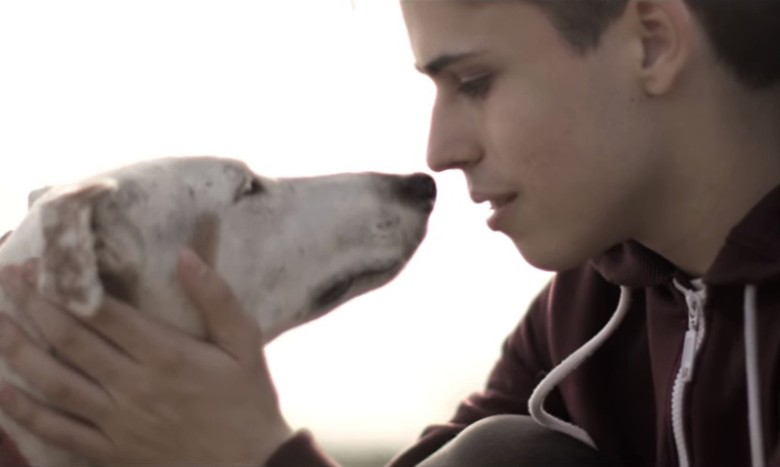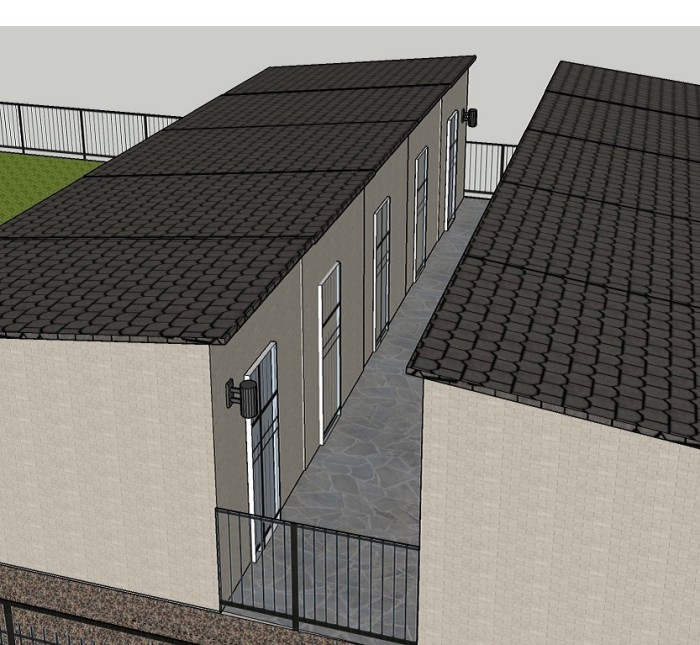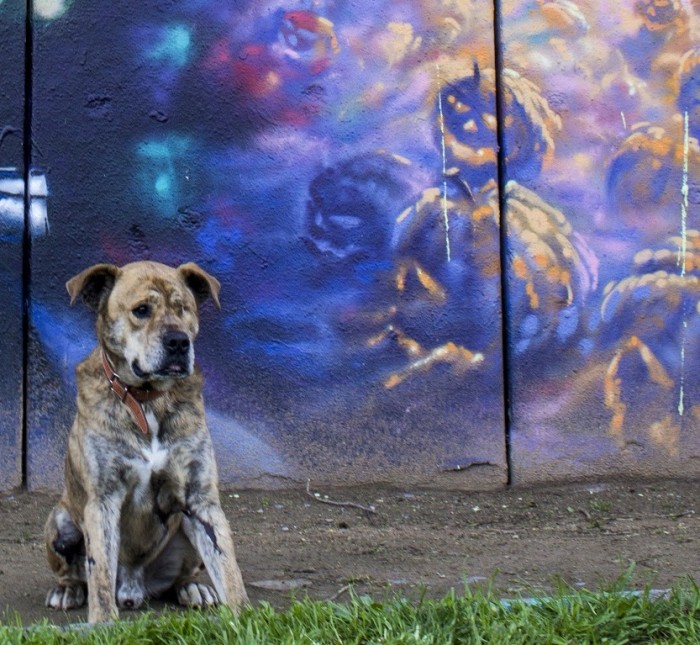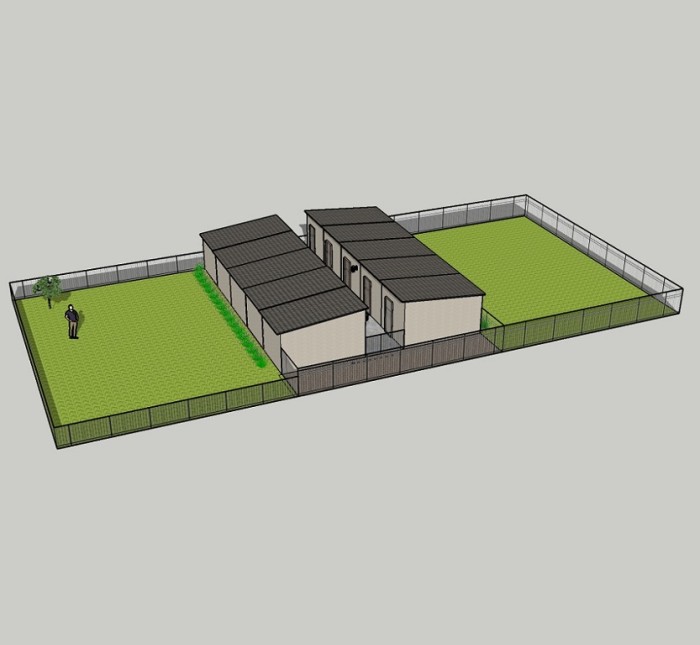Contributing € 5
Wall of collaborators
Send us a photo of yourself and we will attach it on the web along with the other people who participate.
> 08 Backers
We use own and third party cookies to improve your user experience and our services, analyzing users' browsing in our website. If you continue browsing, we will consider that you consent to its use. You can get further information in our Cookies Policy
Centro de recuperación canina


 Min.
Min.
 Opt.
Opt.
Send us a photo of yourself and we will attach it on the web along with the other people who participate.
Send us a photo of yourself and we will place it in the center’s entrance, forming a mural along with the other people photos who participate.
Send us a photo of yourself and we will place it in the center’s entrance, along with the other people photos who participate. We also offer you a keychain with our logo.
We offer you a special edition cup. Send us a photo of yourself and we will place it in the center’s entrance, along with the other people photos who participate.
We offer you a special edition t-shirt for collaborators. Send us a photo of yourself and we will place it in the center’s entrance, along with the other people photos who participate.
We will take you on a guided tour to the center with your friends or with your family.
Come visit our canine rehabilitation center with your friends or family, enjoy a good meal while we explain the project. And get a special edition cloth bag gift!
Come visit our canine rehabilitation center with your friends or family, enjoy a good meal while we explain the project. And get a spetial edition T-shirt and bag gift!
We will place an engraved mural with the patrons’ names and surnames who make this contribution.
We will place an engraved and individualized plaque with your name at the center’s entrance, as patron of the project.
When abandoned dogs and youth deprived of parental care meet
 Task
Task
|
Minimum | Optimum |
|---|---|---|
|
Starting activity costs:
Includes: 1. Cost of building permission. 2- Cost of opening license. 3- Association’s foundation (€ 28.55). 4- administrative procedures related to zoological permissions.
|
€ 1.000 | |
|
Insurance and social costs
1. Center’s civil liability policy (100 €) 2 external interventions’ civil liability policy (€ 100) 3- vehicle insurance and road tax (450 €)
|
€ 650 |
 Infrastructure
Infrastructure
|
Minimum | Optimum |
|---|---|---|
|
Costs of basic supplies for the first six months of activity
1. Spend water (1,200 €) 2- Light and electricity (€ 900) 3. Internet (€ 300)
|
€ 2.400 | |
|
Downpayment for the land
This is the entry price we have to pay for the field where the center will be located (2 hectares), in a town called Cervelló. .
|
€ 15.000 | |
|
Direct costs arising from the center’s construction
This is the construction budget for the Dog Rehabilitation Center facilities: kennels, playground and socialization spaces, and so on.
|
€ 16.500 | |
|
Other costs associated to the field
These 10,000€ would be the remaining amount to pay the total price of the land (€ 25,000).
|
€ 10.000 | |
|
Training and Teaching hall
Training and Teaching workshops and seminars will be done in this small hall or classroom, and in this space we will also work individually with each dog in a safer and more secure environment, separated from other dogs.
|
€ 12.000 |
 Material
Material
|
Minimum | Optimum |
|---|---|---|
|
Vehicle
A second hand vehicle to take the dogs to the vet, the center, and so on.
|
€ 2.500 | |
| Total | € 34.900 | € 60.050 |
Conectadogs is developing the first Animal Assisted Psychotherapy for youth living in protection centers and deprived of parental care, in which children and dogs with parallel lives marked by emotional trauma will help each other. The dogs’ rehabilitation process works as a mirror in which are reflected the youth’s experiences, traumas and virtues.
Together, they’ll heal their wounds.
Our canine co-therapists are nowadays living in animal shelter, and because of their own traumas it’s very difficult for them to find an adoptive family. In order to find them a home, we need to create a canine rehabilitation center.
Help us to make this possible!
This is a two-way project: on the one hand, we aim to create a replicable model of Dog Rehabilitation Center which provides a solution to shelter dogs that, by now, have no chance of being adopted because of their behavior problems. Many shelters don’t have time or resources to reeducate these dogs; therefore, we want to be a support for traditional shelters, avoiding that these animals stay there for years by reeducating them and helping to find an adoptive family.
On the other hand, we are developing an Animal-Assisted Psychotherapy for youth in residential care, in which will participate the dogs of our Center. The hole project constitutes an Research Study collaboration with the Qualiker Group (Faculty of Psychology, University of the Basque Country) and headed by PhD and researchers Alexander Muela and Nekane Balluerka.

On the one hand, we address to shelters that have desperate cases, dogs with many traumas (fear, aggressiveness, etc.) that turn them unable to be adopted. These dogs may end up spending all their lives in the shelter and, in addition to their own misfortune, they imply costs for the shelters, which often does not have time or resources to rehabilitate these dogs.
On the other hand, we help children and adolescents: those living in residential care, through the project we develop with the University of the Basque Country, and also other youth through animal-assisted interventions against bullying in schools and institutes, in which dogs that have been mistreated participate as co-therapists.

Our goal is to get the downpayment for the land that will host the facilities of the Canine Rehabilitation Center (or, optimally, the total cost of the land), the infrastructure needed for the dogs to live, play, socialize and rehab.
We also try to get enough funds to: a) support the center opened during the first 6 months (for supplies, food, material, etc.); and b) get a training-teaching hall in which we can offer courses, seminars and other professional services with the aim of providing regular funds for the benefit of the project’s continuity, along with partners’ contributions, Teamers, and other financing possibilities.

Our team consists of nine members:
Four psychologists:
Laura Oliva Trastoy
Daniel Tejedor
Víctor Carretero
Laia Perera
One Sociologist:
Gina Claros
Two Dog Trainers:
Antonio Soutiño
• Seminar “Detection Dogs”, by Stefan Juntke, Dog-Coaching, Barcelona.
• Seminar "Wolf and Dog Ethology", by David Nieto, Conductcan, Barcelona
• Chicken Camp NV1, Line-AnimalTraining / Conductcan, Barcelona
• Clicker NV1 + NV2 course, AlPerroVerde, Barcelona
• French Ring Plus Seminar, K9 Training Management, Venezuela
• Management and maintenance of canine residences, Vincit Canino, Venezuela
• Professional dog trainer, Vincit Canino, Venezuela
Félix Rodríguez
• Canine trainer and behavior modification technician, Canine FP School, Barcelona.
• Clicker NV1 + NV2 course, AlPerroVerde, Barcelona.
2 marketing and communication professionals:
Javier Ruiz
• Postgraduate in Knowledge of the Animal World, University of Barcelona (currently pursuing).
• Clicker NV1 + NV2 course, AlPerroVerde, Barcelona.
• Independent Edition Course, Cálamo & Cran / European University of Madrid.
• Course of Style Correction, Cálamo & Cran / European University of Madrid.
• Professional Correction Course, Cálamo & Cran / European University of Madrid.
• Degree in Humanities, Pompeu Fabra University, Barcelona.
Laura Palau
• Postgraduate in inbound marketing and branded content.
• The buyer person as a key factor in the social media plan, IEBS, Barcelona.
• Web Analytics, School of Industrial Organization, Barcelona.
• Digital Marketing, IAB, Barcelona.
• Presence and participation in social networks, Teclídies SL.
• Degree in Archeology, University of Barcelona.
• Degree in Humanities, Pompeu Fabra University, Barcelona.

Through the human-dog bond, we can bring opportunities for people at risk of social exclusion as vulnerable as children, and help dogs which also are at risk of exclusion to achieve a better life.
Wall of collaborators
Send us a photo of yourself and we will attach it on the web along with the other people who participate.
> 08 Backers
Happy Wall of Fame
Send us a photo of yourself and we will place it in the center’s entrance, forming a mural along with the other people photos who participate.
> 10 Backers
Happy wall of fame and keychain
Send us a photo of yourself and we will place it in the center’s entrance, along with the other people photos who participate. We also offer you a keychain with our logo.
> 12 Backers
Cup and happy wall of fame
We offer you a special edition cup. Send us a photo of yourself and we will place it in the center’s entrance, along with the other people photos who participate.
> 15 Backers
Special Edition T-Shirt
We offer you a special edition t-shirt for collaborators. Send us a photo of yourself and we will place it in the center’s entrance, along with the other people photos who participate.
> 18 Backers
Group tour to the center
We will take you on a guided tour to the center with your friends or with your family.
> 06 Backers
Lunch in the center + cloth bag
Come visit our canine rehabilitation center with your friends or family, enjoy a good meal while we explain the project. And get a special edition cloth bag gift!
> 02 Backers
Lunch in the center + bag + t-shirt
Come visit our canine rehabilitation center with your friends or family, enjoy a good meal while we explain the project. And get a spetial edition T-shirt and bag gift!
> 00 Backers
Commemorative plaque
We will place an engraved mural with the patrons’ names and surnames who make this contribution.
> 01 Backers
Single plaque
We will place an engraved and individualized plaque with your name at the center’s entrance, as patron of the project.
> 00 Backers